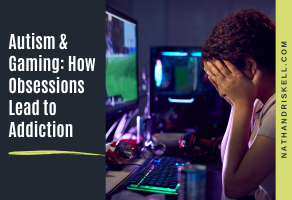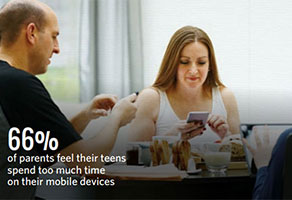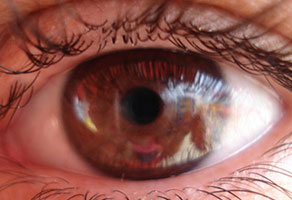Internet Addiction News Weekly 01-22-24
Embarking on a journey through the digital landscape, our exploration delves into the intricate ties between social media and mental well-being. Dr. Phillip Ozimek’s study unravels the stress-materialism connection, revealing the pitfalls of passive social media use. Smartphone addiction, vividly illustrated by an incident in Antioch, echoes the pressing concern for the youth’s mental health. Meta’s ‘nighttime nudges’ and ‘Parental Supervision Tools’ emerge as beacons of responsibility in curbing social media’s adverse effects. Instagram Reels’ immersive allure adds a new layer to the narrative, reflecting a quarter of adolescents reportedly addicted. Finally, the Parental Notification Law on Social Media sparks a legal discourse on protecting minors online, balancing freedom and responsibility. Join us on this exploration, navigating the digital maze for a harmonious relationship with technology.
5 Ways to Reduce Electronics Addiction During the Summer
Summer is here, and it is time for many children to binge 12-16 hours a day in electronics. Between television, gaming systems, tablets and computers, children will be spending much of their time with electronics. In today’s digital world, there are few alternatives to electronics. What are parents to do, if they do not want their children addicted to electrics? In truth, electronics, and the Internet can be addictive, with millions of children already addicted in the US and worldwide. As a former Internet addict, I understand just how tempting and demanding the Internet can be. Below is a list of actions parents can take to help reduce their screen time and help to prevent an addiction from forming.
Treating Autism: Part 4 – Environmental Considerations
In the last article of this series, joining and repetitive actions were discussed, with ways to better interact with and communicate with your child. Joining is an important step in treating Autism, as children need to know they can trust others, especially parents. Due to overstimulation interactions are difficult, causing attention problems and even pain. To best join and interact with your child, a proper environment needs to be created. Creating an environment that is not overstimulating may be difficult, as what we consider overstimulating will be different for someone with Autism.
Autism & Gaming: How Obsessions Lead to Addiction
The other day I was reading an article discussing the negative impact gaming can have on people with Autism. It got me thinking about trends I am noticing from the Clients I have who both have Autism and some form of Gaming Addiction. As a gaming addict with autistic...
Is Gaming Addiction Real?
Gaming has grown up in the past 20 years. No longer is it for the nerd in the basement. As gaming is now mainstream, we must ask the question, is Gaming Addiction real?
Poll Finds 50% of Teens Feel Addicted to Their Mobile Devices
If you have a teenager, you most likely argue about screen time and Internet use. As the Internet has become a major part of our lives, it has transformed the way we access information. For teenagers who have been raised with access to the Internet, they cannot imagine the world without it. Teenagers, as well as adults, have a difficult time without access to the Internet. A poll conducted by Common Sense Media found 50% of teenagers feel they have an addiction to their mobile devices, along with 27% of the parents.
Why I Don’t Take Notes During A Therapy Session
While I was in graduate school working towards my Master’s in Psychology, I was encouraged to take notes in therapy sessions, as a means of remembering important information. At the time it made sense, and I felt it was a good practice. I was used to taking notes, being a student for over 10 years, so the idea of taking notes during a therapy session seemed like a reasonable idea. When I began my Practicum and later my Internship, I realized taking notes in the session did not work for me. As a therapist who works with difficult issues (Asperger’s & Internet Addiction), I found taking notes in sessions disconnected me from my Clients.
Choose: Give Up the Internet Forever or an Eye – 40% Lost the Eye
In a survey conducted by AT&T of over 2,000 US Internet Users, nearly 40% of responders would rather lose an eye than give up the Internet forever. What is more shocking, is 90% would let a friend die than give up Internet Access! More horrifying results contained within.
My First Six Years as a Therapist: A Perspective
Last week, out of the blue, my Linkedin Profile started sending me messages from therapists and other professionals congratulating me on my six-year anniversary working at HOPE Psychotherapy of Houston, first as an Intern, then later with my own practice. I had...
Therapeutic Word of the Day: Recreation
Do you work to live, or live to work? Without recreation, you have no way to recharge. Recreation = health.
Therapeutic Word of the Day: Individuality
You are unique as are your viewpoints. Sometimes it is worth the risk to stand out and say what you think.
















